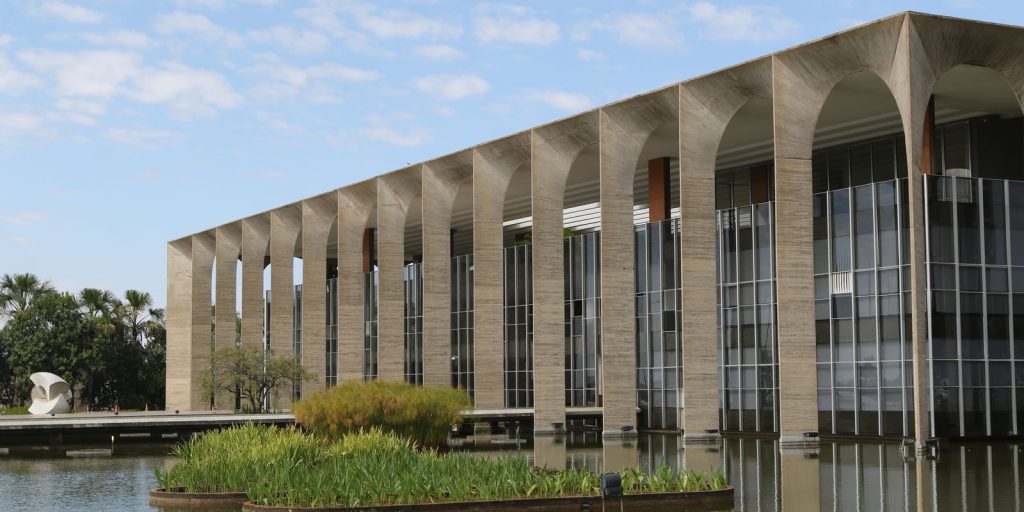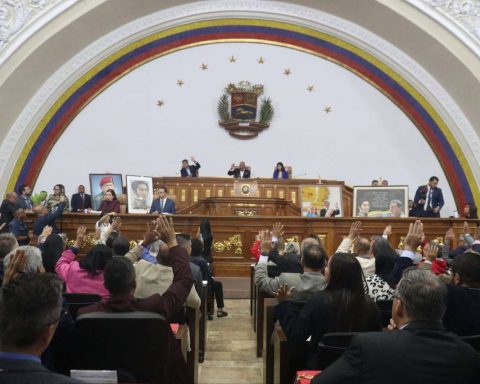There is less than a week left for the 2025 General Budget of the Nation to achieve approval of its total amount in the Congress of the Republic and there is still no concrete proposal from the Ministry of Finance regarding the Financing Law that would cover part of the gap in the expenditure accounts. which have been warned about by analysts, tax authorities and economic research centers.
The Government’s projected spending of $523 billion on operations, debt and investment next year, according to the High Council for Fiscal Policy (Confis), would require at least $24 billion, a situation that revives the risks of a cash imbalance like the one seen this year and which even forced the current budget to be cut. However, the Ministry of Finance is optimistic.
Other news: The 14 commitments of the Government with which it was agreed to lift the truckers’ strike
The Financing Law is the central bet of the Casa de Nariño to face the lack of resources and in order to convince Congress that it is possible to get the money it needs, it recently revealed the tax changes that will be part of the project, which, contrary to what was expected, did not give peace of mind to the market.as some experts warn that it could have adverse effects in the future.
Fall in collection
After carefully analyzing all the proposals that the Ministry of Finance indicated it will include in the Financing Law, the former director of the Dian, Lisandro Junco, presented an analysis in which, from his perspective, there are several elements that are not being calculated well and that, added together, would end up causing tax collection to fall instead of increase, which is what is being sought.
Ministry of Finance and Public Credit
Private file
First, this tax expert argued that the gap is not $12 trillion. as the Ministry of Finance said, but at least $20 billion, which already raises a warning about the inadequacy of this measure. However, it should be said here that the Government will also seek to speed up compliance with the fiscal rule, which would gain about $12 billion more in room for maneuver.
He also said that certain planned changes would not only negatively impact tax revenues, but could also have adverse effects on key sectors of the economy, reducing competitiveness and the ability to generate new taxpayers, which would aggravate the budget deficit instead of alleviating it.
You may be interested in: How will the diesel price increase be carried out after the agreement with transporters?
“They have said that they are going to lower the income tax rate from 35% to 30%, that is, less revenue. In other words, each point of income is worth approximately $3 billion. The effect, if they make it progressive, It would only begin in 2026, when this government is leaving,” he said.
Another change that could influence this decline is the elimination of the Simple Tax Regime, which Junco believes would be a mistake, arguing that it has been proven to be successful in increasing the collection of taxes from small and medium-sized companies by simplifying the tax system. This tax encourages formalization and has shown notable growth in 2024.

Economic recession
PHOTO: iStock
“It is a tax that seeks to get informal workers to join and it is a tax that grows and grows in the collection of the year 2024 and that its figures prove that the simpler a tax system is, the more informal people join and the more collection is generated. Today, the Simple has already exceeded the collection achieved in the entire year 2023,” Junco said.
Mining and hydrocarbons
The former director of the Dian also raised objections to the taxes on the mining and hydrocarbon sectors that are going to be changed and warned that this would maintain a high income tax rate, while the carbon tax is increased, through measures that do not consider the reduction of taxpayers in the sector, which could lead to a drop in revenue, further affecting the capacity of these industries to generate the income that the Government intends to collect.
Read also: ‘We have resolved it faster than they thought,’ says Petro on the agreement that ended the strike
“The siege of the mining and hydrocarbon sectors also continues, “by maintaining the 35% income tax rate, that is, they do not lower the rate and also by raising the carbon tax. It seems that they do not know the data of the sector because there are fewer and fewer taxpayers, so where are they going to get the money to pay more taxes,” he explained in this regard.
He also stressed that this could affect Ecopetrol, indicating that the new taxes would have a direct impact on its dividends, reducing the company’s ability to transfer resources to the State.
“Remember that Ecopetrol, being the main hydrocarbon company, would generate less dividends in these instances because the dividends would be trapped in the payment of income tax,” said Junco, for whom this situation could force the Government to implement advance withholdings, which would turn the oil company into a “checkbook” to cover the growing public expenses, affecting its profitability and long-term investment capacity.
Less competitive
Another criticism was the increase in VAT from 5% to 19% on hybrid vehicles, This analyst believes that this tax could encourage the purchase of combustion vehicles, negatively affecting the environment. Furthermore, Lisandro Junco points out that the Airbnb tax has already existed since 2018, so it is not a novelty.

Colombian pesos
iStock
“Additionally, they are seeking to raise the occasional profit tax by 5 more points, when we have proven that the higher this occasional profit tax rate is, the less revenue is generated,” he concluded.
The analysis closed by recalling that the government of President Gustavo Petro is known for having an “economic team that invents figures,” bringing up the case of the $15 billion that was projected for tax litigation for this year and that was not achieved, to warn that one must begin by generating certainty and confidence among Colombians, starting with the presentation of a formal document.


















